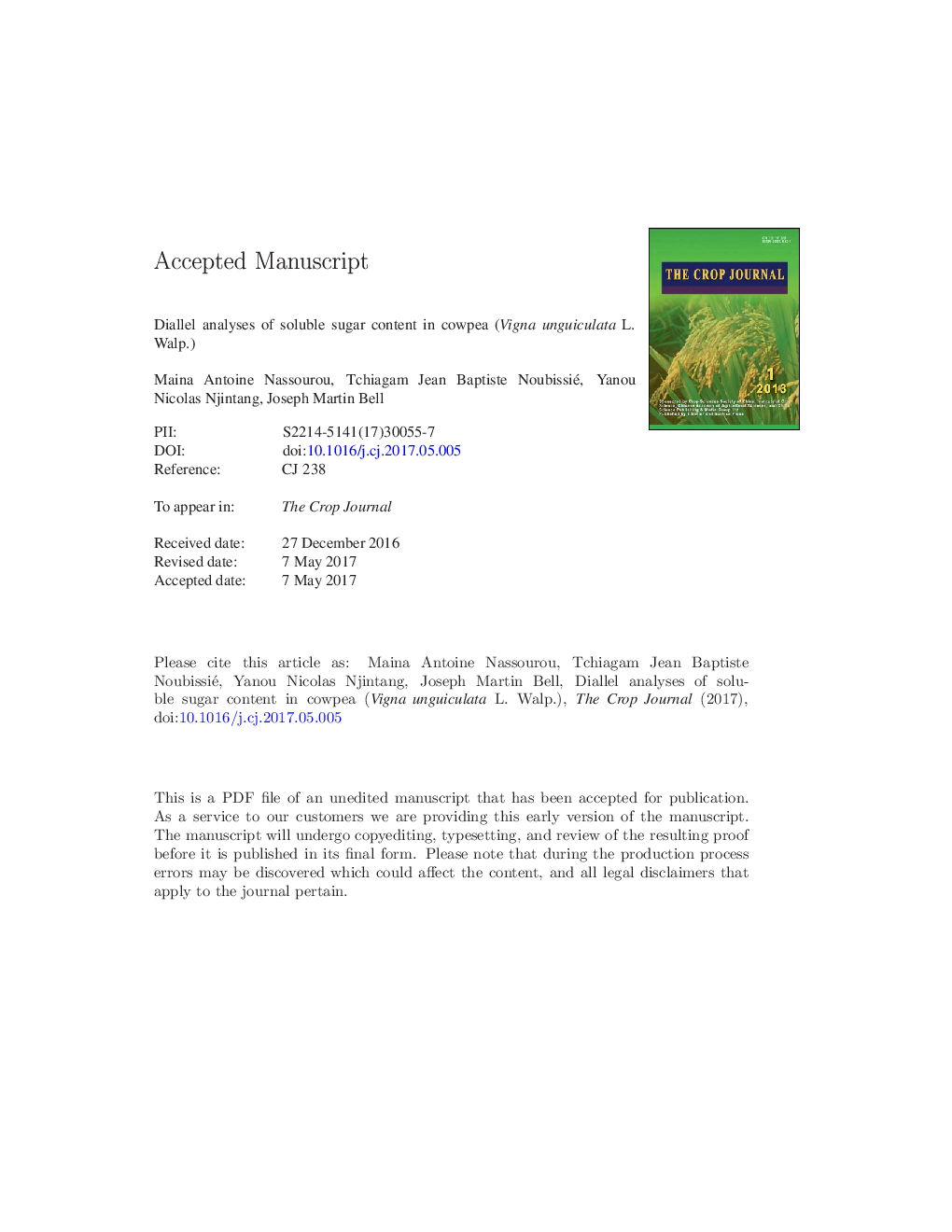| Article ID | Journal | Published Year | Pages | File Type |
|---|---|---|---|---|
| 8408835 | The Crop Journal | 2017 | 12 Pages |
Abstract
The content of soluble sugar in cowpea (Vigna unguiculata L. Walp.) seeds is important for their acceptability to consumers. The objective of this study was to evaluate the genetic control of soluble sugar content in cowpea using diallel analysis. For this purpose, half-diallel crosses were made among seven diverse parents. The amount of total soluble sugar was estimated by the phenol sulfuric acid reagent method and reducing sugar were measured by the DNS (3,5-dinitrosalicylic acid) reagent method. The total soluble sugar ranged from 11.12 (VYA) to 40.79 mg gâ 1 (IT93K-693-2) with a mean of 22.31 mg gâ 1. Reducing soluble sugar showed a mean value of 9.11 mg gâ 1 and ranged from 13.61 (TVx 3236) to 4.98 mg gâ 1 (Lori niébé). Diallel analysis showed that both additive and non-additive gene effects were significant in the genetic control of these traits. However, dominance variance was greater than additive variance for soluble sugar. The traits were controlled mainly by an overdominance model, suggesting the advantage of delaying selection to later generations. Soluble sugar content was found to be highly heritable, with broad-sense heritability ranging from 0.987 to 0.976. Narrow-sense heritability ranged from 0.154 to 0.422 and revealed the lower importance of additive variance. Parents and F1 hybrids differed significantly on the basis of their general and specific combining abilities, respectively. Recessive alleles had positive effects on total soluble sugar and reducing soluble sugar. These results could help cowpea breeders improve the acceptability of cowpea seeds and cowpea-based foods by appropriate selection.
Related Topics
Life Sciences
Agricultural and Biological Sciences
Agronomy and Crop Science
Authors
Maina Antoine Nassourou, Tchiagam Jean Baptiste Noubissié, Yanou Nicolas Njintang, Joseph Martin Bell,
